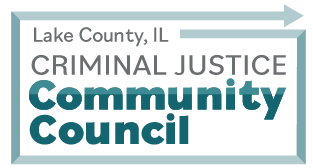
About
Who we are
Sheriff John D. Idleburg launched a public-facing Criminal Justice Community Council (CJCC) in the fall of 2019 to provide an ongoing collaborative forum between community voices and various Lake County justice system representatives.
The CJCC involves stakeholders from numerous sectors of our community, including law-enforcement professional, local and countywide elected officials, community service/advocacy organizations, faith-based community leaders, Lake County justice partners, and more.
The Council meets quarterly, addressing important community topics such as:
Strengthening community-law-enforcement partnerships
Ensuring all community sectors have a voice in the justice process
Collaborative and innovative approach to justice reform
Examining increasing levels of incarceration, including incarceration of those with mental health disorders
Examining disparities in the judicial system including people of color and those in other protected classes
Enable community voices to provide input and counsel to criminal justice representatives

Our mission
The principal mission of the Council is to provide an ongoing collaborative forum to study the Lake County juvenile and adult criminal justice system, identify best practices, and formulate policy, plans and programs for change when opportunities present themselves. In addition, its mission is to
communicate and present planning, financial, operational, managerial, and programmatic recommendations to the agencies represented on the Council,
provide the coordinated leadership necessary to establish cohesive public policies that are based on research and support evaluation and monitoring of policy decisions and program implementations, and advance evidence-informed corrections practices and programs for adult and juvenile offenders.
National movement
Criminal justice coordinating councils (CJCCs) emerged as early as the 1970s as a means to create systemic responses to specific problems facing local jurisdictions such as jail crowding and domestic violence but waned over time. The concept of the CJCC has begun to emerge again as an effective means for improving public safety, creating system-based approaches to justice issues, reducing duplication of effort and conflicting practices, and improving how local jurisdictions allocate limited justice system resources.
A criminal justice coordinating council (CJCC) is the general term used to describe a body of elected and senior justice system leaders that convene on a regular basis to coordinate systemic responses to justice problems. CJCCs differ widely in membership and structure. However, generally speaking, a CJCC is a partnership of decision-makers who have a stake in the effective administration of justice.
Typically the partnership includes representatives from:
The 3 branches of government (executive, judicial, and legislative);
Multiple levels of government through city, county, and state agencies; and
Allied stakeholders from various other governmental entities such as education or health and human services, community based organizations, service providers, and citizens.

Key partners
There are no more than 30 voting members of the Council who are members due to the position they hold. These members serve on the Council for as long as they occupy the position:
Lake County Sheriff
A Safe Place
Nicasa Behavioral Health Services
Waukegan Township
Coalition to Reduce Recidivism
Victim advocate
Community Members
Formerly Justice Impacted Individuals
19th Judicial Circuit Juvenile Probation Director
Illinois General Assembly member or his/her designee
Lake County Sheriff
19th Judicial Circuit Designee
Juvenile Justice Coordinating Council
Lake County State’s Attorney
Lake County Coroner
Lake County Public Defender
19th Judicial Circuit Adult Probation Director
Lake County Board Chair
Lake County Circuit Court Clerk
Lake County Health Department
President, Lake County Chiefs of Police Association or his/her designee
Other members may include but are not limited to: League of Women Voters of Lake County, Waukegan Main Street, Faith in Place, Waukegan Public Schools, United Way, Switch Lanes, Legacy Re-Entry Foundation, Mano a Mano Family Resource Center, Round Lake Beach Police Department, Mayor of North Chicago, Waukegan Park District and others as deemed appropriate by the membership.
Roles & Definitions
Office of the Lake County State’s Attorney
The Lake County State’s Attorney’s Office represents the people of Lake County and at times the County itself in a court of law. It is dedicated to seek justice with integrity by vigorously and ethically prosecuting criminal acts, with empathy and compassion for the victims of crime and unwavering respect for the rights of the accused; to protect the people of Lake County by working with our criminal justice partners to make our communities safe; and to provide exceptional and professional legal representation to Lake County and its elected and appointed officials, thereby promoting responsible and trustworthy government.
The Lake County Public Defender’s Office represents indigent criminal defendants charged with crimes punishable by incarceration. The goal is to assure an excellent quality of legal representation that is not dependent on the wealth and status of the accused. The Public Defender and Assistant Public Defenders are attorneys licensed to practice in the State of Illinois. Public Defender attorneys are appointed to criminal defendants who cannot afford a lawyer. If you do not have the money for a lawyer, the Court will appoint you to the Public Defender’s Office. This representation is mandated by the U.S. Constitution, the Illinois Constitution, and Illinois law.
The mission of the Lake County Coroner’s Office is to conduct honest and independent death investigations based on the facts and evidence, to protect and serve those who have gone before us, their families, and the general public.
The Lake County Sheriff’s Office serves as the largest law enforcement agency in the county with many key and diverse roles; Access information about their services, the jail, and crime prevention, and the merit commission.
Responsibilities
The Waukegan Police Department serves the community by protecting citizens and property, preventing crime, enforcing laws, and maintaining order.
The Waukegan Police Department is comprised of 148 sworn police officers.
Goals
The main goal of the Waukegan Police Department is to create and maintain a safe, secure environment for all Waukegan citizens. We strive to accomplish this goal through proactive community programs designed to prevent crime as well as efficient, thorough investigations of crimes committed.
The vision of the Lake County Judicial System is to be one truly independent and empowered branch of government providing a fair and responsive system of justice while protecting rights and liberties, upholding and interpreting the law, and resolving disputes peacefully, fairly and effectively in Lake County, Illinois. This includes an effectively managed Judiciary and Judicial System that fully utilizes technological advancement and alternative dispute resolution to best serve the public, while seeking the highest possible understanding, trust, and confidence.
Mission Statement
The mission of the Circuit Court of Lake County is to serve the public. It accomplishes this mission by providing a fair and efficient system of justice, committed to excellence, fostering public trust, understanding and confidence.
Mission Statement
Our mission statement is: Promoting the health and well-being of all who live, work, and play in Lake County. As the largest human service provider in Lake County, we believe that services must be available without barriers. No residents are turned away due to an inability to pay. We also believe in providing services in an environment of mutual respect, free of discrimination or bias. The Health Department is governed by a 12-member Board of Health. Members are appointed by the Lake County Board, and are Lake County residents of various backgrounds.
Nicasa is a not-for-profit behavioral health services organization that is building brighter futures for vulnerable and at-risk children, adults, and families in Lake County and northern Illinois. Since 1966, Nicasa’s network of dedicated and caring professionals has been pioneering award-winning efforts in prevention, early intervention, treatment, and recovery. Our mission is transforming one life at a time through our behavioral and social health services. This mission drives our vision strengthen the communities we serve by being the premier behavioral and social health services provider.
The Living Room Wellness Center at the independence Center provides a safe comfortable. Inviting environment where skilled Certified Recovery Support Specialist (CRSS) provide crisis intervention referrals and other needed services for guests experiencing a crisis. The Living Room is an alternative to the emergency room for guests with increased symptoms or near a crisis. The purpose is to:
· Offer a safe and positive environment where guests can go to for support and comfort
· Assist guests with developing their coping skills for enhanced interpersonal and social skills
· Help guests make meaningful changes in their lives.
· Support guests as they seek to develop and maintain a moderate living lifestyle



